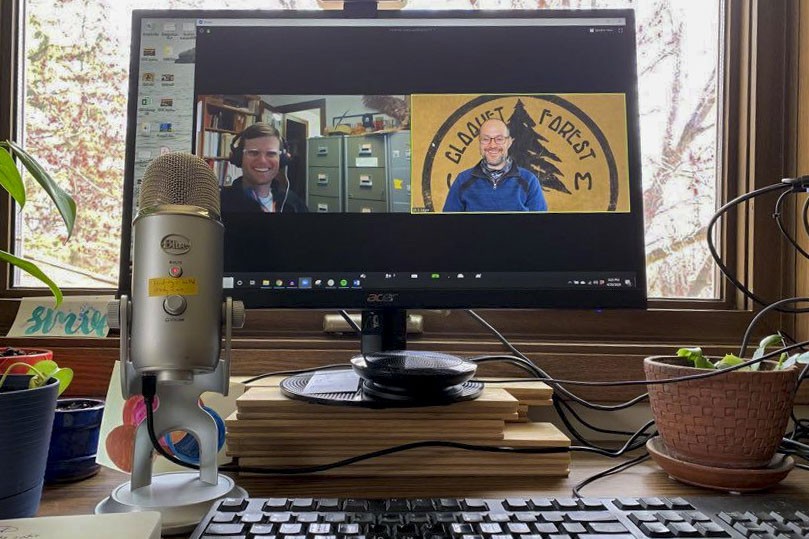Two University of Minnesota foresters started a biweekly podcast earlier this month to share stories and bring foresters together statewide during the pandemic.
The podcast, named “Camp 8,” is produced and hosted by Eli Sagor, program manager of the Sustainable Forests Education Cooperative, and Kyle Gill, a forest manager and research coordinator. The two work together at the Cloquet Forestry Center, a forest used for education and research by the University, and said they are passionate to interview the voices of the Minnesotan woods.
The two foresters are using the podcast to tell stories and break down cultural bias surrounding forestry.
“In the forestry center [what] we really try to get across is that what foresters do is not necessarily cut down trees,” said Gill. “One of my, kind of, secondary goals is to give people that maybe aren’t in the field currently insight into what forestry actually looks like – which is our relationship to the land, basically.”
In the episodes, Sagor and Gill said they hope to cultivate curiosity about the profession. The themes are inspired by the work and experiences of being a forester.
Sagor said he had the idea to start a podcast a while ago, but it was not a high priority because of other responsibilities in his role. But, since the pandemic, he said he felt now was the right time to create a platform for foresters to stay connected to each other.
“[The podcast] really just came out of the time we were living in and me sitting in my home office not seeing any of my co-workers that I normally see except on Zoom,” Sagor said. “Simple stories and lived experiences are so powerful to help people to relate to one another to feel that they’re not in it alone.”
The first episode highlighted the different perspectives of foresters adjusting to COVID-19. The experiences ranged from struggling with social distancing and how to cope with the circumstances.
“Hopefully, it’s like a morale builder or a spirit lifter for people who are tuning in and a way for people to feel like they’re part of something communal even though they’re stuck at home or out in the woods alone,” said Lane Johnson, a listener to the podcast and research forester.
The “Camp 8” podcast will have a total of 12 episodes and include voices of diverse perspectives in forestry. Gill and Sagor will rotate episodes so each host will take over in interviews. The first two episodes of “Camp 8” are available on the University’s Sustainable Forests Education Cooperative website.
“Not very many people understand what foresters do,” Sagor said. “If we can elevate some of those voices, not of PR people, but have regular people doing the work every day, I think we can really build understanding both within our community and beyond.”








